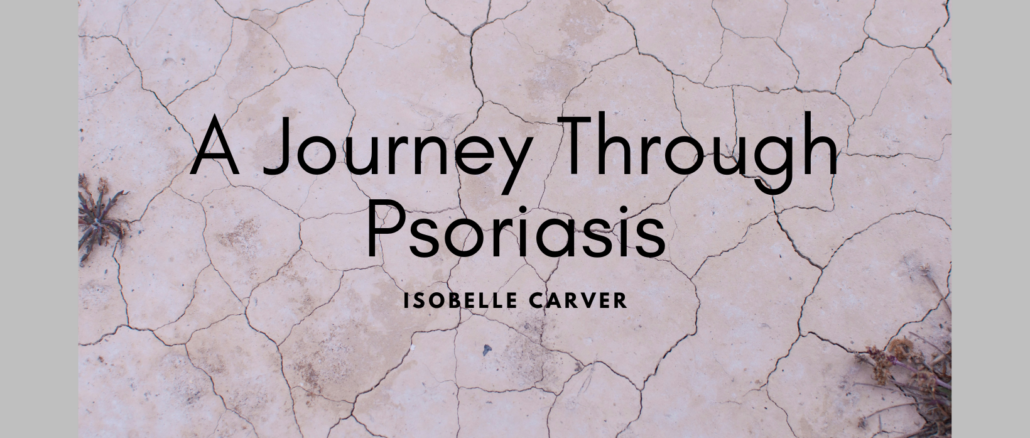
Psoriasis is a chronic autoimmune condition that affects millions of people worldwide, causing red, scaly patches to appear on the skin. While it primarily manifests as a skin disorder, psoriasis can also impact mental and emotional well-being, presenting unique challenges for those living with the condition. In this article, we delve into what psoriasis is, its underlying causes, and strategies for managing the physical symptoms and coping with the social and emotional aspects of the condition.
What is Psoriasis?
Psoriasis is a complex autoimmune disorder characterised by an abnormal immune response that leads to the rapid overproduction of skin cells. This excessive cell turnover results in the formation of thick, raised patches of skin known as plaques. These plaques can appear anywhere on the body but are most commonly found on the elbows, knees, scalp, and lower back. Psoriasis is not contagious, but its visible symptoms can often provoke misconceptions and stigma.
Causes and Triggers
While the exact cause of psoriasis remains unknown, it is believed to result from a combination of genetic, environmental, and immune system factors. Certain triggers, such as stress, infections, injuries to the skin, and certain medications, can exacerbate psoriasis symptoms and lead to flare-ups. Understanding and identifying triggers can be crucial in managing the condition and preventing flare-ups.
Managing Psoriasis
Psoriasis management typically involves a combination of medical treatments, lifestyle modifications, and self-care strategies. Medical treatments may include topical creams and ointments, oral medications, phototherapy (light therapy), and biologic injections. Additionally, lifestyle changes such as maintaining a healthy diet, managing stress levels, avoiding triggers, and quitting smoking can help improve symptoms and overall well-being.
Coping with the Social and Emotional Impact
Beyond the physical symptoms, psoriasis can have a significant impact on mental and emotional health. The visible nature of the condition can lead to feelings of self-consciousness, embarrassment, and low self-esteem. Individuals with psoriasis may experience social stigma, discrimination, and isolation, which can further exacerbate feelings of anxiety and depression.
To cope with the social and emotional challenges of psoriasis, it’s essential to prioritise self-care and seek support from healthcare professionals, family, and friends. Connecting with support groups or online communities can provide a sense of belonging and understanding. Additionally, practicing stress-reduction techniques such as mindfulness, meditation, and relaxation exercises can help manage anxiety and improve overall well-being.
My Journey
For six long years, I have battled with psoriasis—a relentless condition that has tested my patience, resilience, and self-esteem. Diagnosed alongside my Hashimoto’s disease, managing psoriasis has been an uphill battle, marked by countless doctor’s appointments, medication trials, and moments of frustration. Despite my best efforts and the recommendations of numerous healthcare professionals, including alternative medicine practitioners, my psoriasis seemed to defy every treatment, fighting back with increasing intensity each time.
The visible signs of psoriasis—red, angry patches of skin on my knees and elbows—became constant reminders of my struggle, triggering feelings of insecurity and self-consciousness. I found myself withdrawing from social situations, hiding my skin beneath long sleeves and trousers, ashamed of the judgment and misunderstanding I feared from others. Adding to my distress was the sobering realisation from my doctor that psoriasis is a chronic condition with no permanent cure, leaving me to grapple with the prospect of a lifetime of managing its symptoms.
Amidst the despair and uncertainty, I refused to lose hope. Determined to find relief, I embarked on one last journey, seeking out a new treatment option that could offer me the reprieve I so desperately sought. That’s when I discovered Enstilar—a foam formula prescribed over the counter for psoriasis. Skeptical yet hopeful, I decided to give it a try, clinging to the possibility of finding some semblance of normalcy once again.
To my amazement and relief, Enstilar proved to be a game-changer. Within a week of starting treatment, the patches on my elbows—the most stubborn and visible areas—had cleared up completely, leaving behind smooth, healthy skin. The transformation was nothing short of miraculous, restoring not only my skin but also my confidence and sense of self-worth.
As I basked in the newfound freedom from psoriasis, I was reminded of the importance of perseverance and resilience in the face of adversity. I realised that while psoriasis may never truly go away, it doesn’t have to define me or dictate my life. With the right treatment and support, I could reclaim control over my skin and my confidence, refusing to let psoriasis hold me back.
However, it’s essential to approach psoriasis treatment with caution and awareness. While Enstilar has been a lifeline for me, it’s crucial to heed warnings about the potential risks, including the development of steroid withdrawal if overused. Finding the right balance and monitoring one’s usage is key to maximising the benefits of treatment while minimising the risks.
My journey with psoriasis has been marked by struggles and setbacks, but it has also been a testament to the resilience of the human spirit. To anyone grappling with psoriasis or any chronic condition, I urge you never to lose hope and never to give up on finding a treatment that works for you. You are not alone in your struggle, and there is always hope for a brighter tomorrow.
Living with psoriasis presents unique challenges, both physical and emotional. By understanding the nature of the condition, identifying triggers, and implementing effective management strategies, individuals with psoriasis can lead fulfilling lives and maintain their overall health and well-being. It’s essential to seek support from healthcare professionals and loved ones and to prioritise self-care and mental health in navigating the journey with psoriasis. With the right tools and resources, individuals can empower themselves to manage the condition effectively and embrace life with confidence and resilience.
SheSociety is a site for the women of Australia to share our stories, our experiences, shared learnings and opportunities to connect.

Leave a Reply